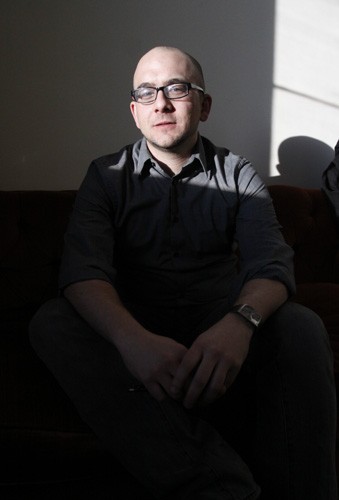UA assistant sociology professor Jeff Sallaz recently published a book on casinos, capitalism, and politics entitled “”The Labor of Luck.”” The Daily Wildcat sat down to discuss his research for the book.
DW: Where did your inspiration for writing The Labor of Luck initially evolve from?
JS: I wrote the book as my dissertation thesis, while I was a graduate student at the University of California, Berkeley. This was during the late 1990s and at that time in California, there was a public referendum to legalize casinos on Native American land in the state. This got me thinking about the politics of casino legalization. I wondered why Las Vegas had casinos but Phoenix didn’t. They are both big cities in the west but one has casinos and the other didn’t. I noticed a trend where states and even countries (were) deciding to have casinos, versus for years casino gambling had been considered a criminal activity.
DW: Could you explain “”casino capitalism,”” a major theme in your book and its role in the economy?
JS: One of the essential points is that increasingly casinos became a development strategy for states. This could be a city, a state, or even a country. I argued that since the 1970-1980s, many states experienced a fiscal crisis. They were not bringing in enough revenue to cover your expenses. States began to think entrepreneurially, they wanted to think of new ways to bring in revenue into their coffers. In essence, I argued that casinos and these forms of legal gambling, like lotteries became hidden forms of taxation.
DW: What were some of the differences between dealers and gamblers in the United States and South Africa?
JS: I had a chance to work inside a casino in Johannesburg, the economic capital of South Africa, and I discovered that the same type of games such as slot machines, blackjack, roulette are played there but the interactions between the gamblers and dealers are very different. If you go to a casino in Las Vegas, versus one in South Africa, versus one in France, you are going to discover that gambling means very different things to the people who work there, as well as the people who gamble there.
DW: What was the atmosphere like in a South African casino compared to one of the Las Vegas strip?
JS: The atmosphere of the casino is pretty similar, people there are attempting to make money by gambling on the games. In South Africa, one of the things I talk about is that it is a society where the politics of race are much more immediate and public than they are in the U.S. I discovered the racial dynamics between dealers and gamblers were much more explicit in South Africa.
DW: What were some obstacles you faced while collecting data for your book?
JS: Money. I had to get somebody to pay for all this while I was in graduate school. I had to apply for a lot of different fellowships and scholarships. Also, there was the challenge of spending long periods of time living overseas. It was definitely a major transition to live in South Africa. I spent quite a bit of time living on a Native reservation in California, during the course of my fieldwork. I rented a little apartment on the Las Vegas strip for a while. I basically kind of felt homeless or transient for a big part of it, and so dealing with the nomadic lifestyle was challenging.
DW: How long did the entire book writing process take?
JS: About seven years from start to finish, a very long process.
DW: How long was your stay in South Africa?
JS: I was there for two years.
DW: What sort of feedback have you received from your book?
JS: People have seen the book published and if you are on Amazon, then you are somebody — so I get a lot of “”I saw you on Amazon!”” Ideally, I would like this book to sell some copies. It is hard to cross-market academic books for a more popular audience but if you are interested in casinos or politics, then this might be a book that you would enjoy to pick up.









